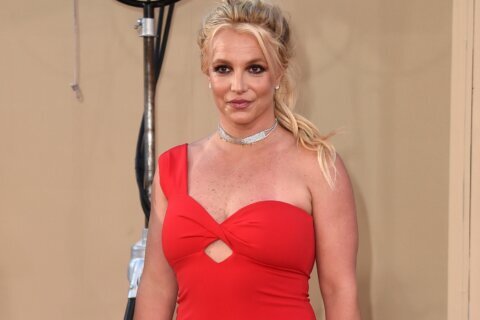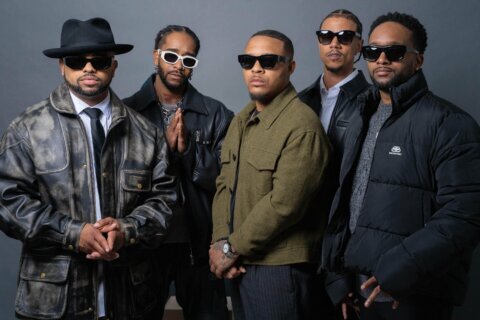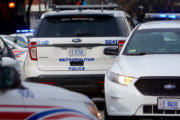WASHINGTON — It’s become a beloved annual D.C. tradition for the past dozen years.
This month, the 12th annual Capital Fringe Festival returns to Northeast from July 6-30, bringing art, music, theater and dance to 19 venues, mostly in the Trinidad neighborhood.
“This year, we’ve reduced the size of our festival a lot, because we really wanted to have a walkable area,” festival founder Julianne Brienza told WTOP. “The last three years, we’ve been really spread out. … Tickets sell better if people can just sort of bop around to each venue.”
You can “bop around” on H Street at the Atlas Performing Arts Center and Pursuit Wine Bar, as well as Florida Avenue at the Logan Fringe Arts Space, Gallaudet University and the new venue Shopkeepers. There are also several “find-your-own venues” across the District.
“The shows are produced and presented by the artists themselves, and we just serve as a vehicle to get the shows out there,” Brienza said. “They really run the gamut. … We have about 90 productions in the festival this year, and they run from drama to comedy to dance.”
Among the lighter fare is ComedyWorks’ “Comedian Elected to Town Council in New Jersey.”
“Literally, a comedian is elected to the town council,” Brienza said. “How many times do you turn on the radio or TV and hear stories about regular people running for office?”
Elsewhere, prepare to be dazzled by the high-flying Shakespeare adaptation “MacBheatha.”
“It is an aerial performance,” Brienza said. “Aerial performers are hanging from the ceiling on fabrics and stuff! I’m excited to see how they choose to do it.”
You can also catch some wildly experimental stuff, such as Brian Feldman’s “Dishwasher.”
“One year, he went in people’s homes and washed their dishes in their sink,” Brienza said with a grin. “This year, you get to go to his house and wash his dishes. You buy a ticket to the show, then you go to his home and you wash his dishes and he does a monologue for you.”
Some shows explore current events, such as “Constructive Fictions” about D.C. Rabbi Barry Freundel, who was sentenced to six-and-a-half years in prison for voyeurism back in 2015.
“When I first heard about it, I was like, ‘Do you have permission?'” Brienza said. “It’s very recent and probably painful to a lot of people. None of the victims’ names are used.”
Likewise, expect political and social commentaries, from “Howl” to “Abortion Road Trip.”
“This is the first year all the shows have a social justice theme,” Brienza said. “D.C. has gone through a lot of changes since the Trump administration. … ‘Howl in the Time of Trump’ will be somewhat interesting. … I think going back to Allen Ginsberg’s writings and seeing how someone is going to interpret that on stage will give people ideas on how to move forward.”
Also be sure to catch some free live music in Franklin Park and the Logan Fringe Arts Space.
“We’re doing free live music in our outdoor bar in a courtyard every Saturday and Sunday from noon to 5 [p.m.],” Brienza said. “It’s all local musicians and it’s programmed by Luke Stewart, who’s a really great musician here in the area. We’re also doing Downtown D.C. Live in Franklin Park. … Then, for those who like to stay up late and party, we’re also doing an awesome D.J. series that’s free starting around 11 p.m. and going to 3 in the morning.”
Individual shows cost $17 each. You must also buy and wear a $7 Fringe button, which provides discounts to local restaurants, including Biergarten Haus and H Street Country Club.
“There’s a lot of bars and restaurants that, with your Fringe button, you can get 10 to 20 percent off of a meal,” Brienza said. “That’s one thing that’s been really great about that neighborhood is that they support the festival in that manner. … It’s summer, walking around, checking out a part of the city that you may not be familiar with that is rapidly changing.”
Best of all, your ticket money goes to a great cause.
“The artists get back 60 to 70 percent of their ticket revenue,” Brienza said. “In all, we’ve given back $2 million to the artists. … Artists are moving away from D.C. because of the high cost of living, so the more that we can support artists to be able to make money, the Fringe Fest is a way to do that. It doesn’t mean making a donation — it means buying a ticket to see a show.”
Click here for more information. Listen to our full conversation with Julianne Brienza below:








